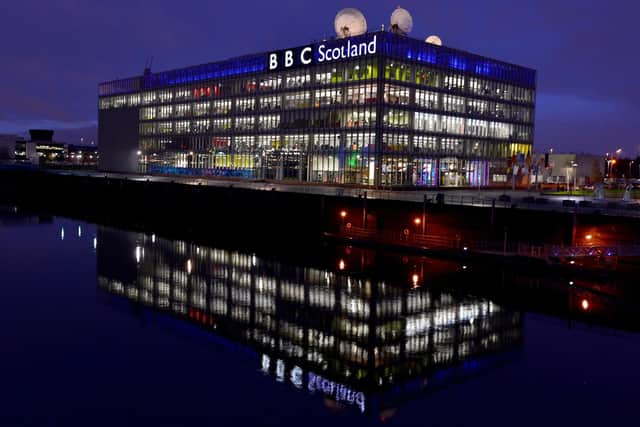BBC ordered to work more closely with publishers by regulator Ofcom given independent news threat
The BBC has been ordered to work more closely with publishers amid growing concerns about the threat it poses to the future of independent local news.
Industry regulator Ofcom will also be told to produce an annual report looking at the impact the corporation is having on local news in the UK.
Advertisement
Hide AdAdvertisement
Hide AdThe instructions are contained in the Government’s mid-term review of the BBC’s Charter – its contract with Government that is underpinned by the licence fee, a criminally-enforced tax paid by every household that watches live TV.


The mid-term review also gives media regulator Ofcom greater powers to scrutinise the BBC’s online services, which have attracted strong criticism from independent publishers, after the BBC began cutting English local radio services and boosting its local news online, in competition with existing local news websites.
In Scotland, the BBC also drew criticism last week after it emerged news bulletins on the £37m-a-year BBC Scotland TV channel were drawing tiny audiences.
One edition of The Seven attracted an audience of just 200 people, while an episode of The Nine – the channel's flagship news programme – drew only 1,700 viewers. The corporation recruited 80 journalists, in addition to its existing staff, to produce news output for the new channel.
Appearing before MSPs last week, Steve Carson, director of BBC Scotland, said the tiny audience numbers should not be taken in isolation, and justified the corporation's spending by pointing to higher numbers for BBC Scotland's online services.
But independent publishers say the BBC’s licence fee model, which enables it to publish stories online without adverts, gives it an unfair advantage that could ultimately drive some historic local news titles out of business.
An announcement from the Department for Culture, Media and Sport said the mid-term review “stresses the need for the BBC to clearly demonstrate how it will meet its obligations on distinctiveness” and for for the BBC “to meaningfully engage with its competitors, such as radio stations and local newspapers, when considering changes to its services”.
The BBC’s complaints process will also be overhauled, to provide more independent scrutiny, amid concerns the current complaints service doesn’t inspire confidence from those raising objections about the organisation.
Advertisement
Hide AdAdvertisement
Hide AdIn December, senior editors across the industry, including from this title, took the unprecedented step of writing to readers to warn of the dangers of the BBC’s expansion into local news, branding the corporation "neighbours from Hell."
The BBC dismissed the concerns in a statement on its website, pointing to its funding of 165 local democracy reporters through the Local News Partnership with publishers. Publishers, who employ the LDRs under contract from the BBC, say the positive intent of the LDR scheme is wiped out by the existential risk the BBC’s wider local news plans pose for independent publishers.
Owen Meredith, chief executive of the News Media Association, said: “The government’s recommendation that the BBC strengthen its transparency and engagement with commercial media providers is welcome and makes clear the BBC needs to change its current approach, particularly in the local news marketplace, to support rather than compete with commercial providers.
"By needlessly boosting its digital local news offering, at the expense of much-loved local radio services, the BBC threatens to crush commercial local news publishers who cannot be expected to compete with the might of the licence fee. Ultimately, this could result in the BBC becoming the only source of local news in many communities.
“MPs and Ofcom need to wake up to this threat and press the BBC to change course on these misguided plans.”
Culture secretary Lucy Frazer said: “The Government wants to see a strong, independent BBC that can thrive in the years to come as a major contributor to the nation’s successful creative industries.
“In a rapidly changing media landscape, the BBC needs to adapt or risk losing the trust of the audiences it relies on. These changes will better set up the BBC to ask difficult questions of itself, and make sure Ofcom can continue to hold the broadcaster to account. We all rely on the BBC being the best it can be and this review will help ensure that is what the British public gets.”
Comments
Want to join the conversation? Please or to comment on this article.